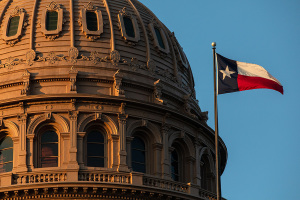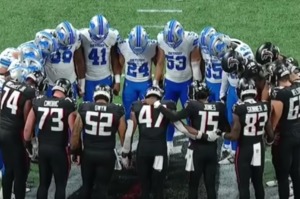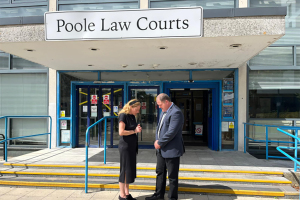How the Little Sisters Won Their Debate With Obama

Lots of bad news out there lately. But not today. Today we'll talk about a big win for religious freedom.
On May 15th, the Supreme Court handed a big victory to the Little Sisters of the Poor and other Christian organizations that refused to go along with the HHS contraceptive mandate.
Not that you would know this if all you had to go on was the reaction of the mainstream media. When they weren't downplaying the impact of the court's three-page ruling remanding the cases to the lower courts, they were all-but-ignoring the story.
For instance, at the time this commentary is being written, there is no — that would be zero, zip, nada — mention of the story at the Washington Post's homepage. There's room for a story about a remake of the "Rocky Horror Picture Show" that has some LGBT activists upset, and a story about a food truck owner who sacrificed his family's pet poodle in the backyard barbecue, but nothing about a ruling about the first freedom, freedom of religion. Are you shocked?
To understand why the Supreme Court's action is good news, a little background is in order. Under the Religious Freedom Restoration Act, the law that formed the basis of the Little Sisters' legal challenge to the HHS Mandate, a federal law that "substantially burdens" religious freedom can only be upheld if it meets the following criteria: it furthers a "compelling governmental interest," and it furthers that interest in the "least restrictive way" possible.
While various parties challenged whether providing free contraception and abortifacients really constitutes a "compelling governmental interest," the real argument was whether the Obama administration had chosen the least-restrictive means.
The administration insisted that its "accommodation," in which the Little Sisters and others had to hire an insurance company that would provide the objectionable coverage, and then soothe their consciences by signing a form, was the least-restrictive means possible.
But as the Becket Fund, which represented the Little Sisters, pointed out during oral arguments this past March, the government had to admit that it "did have other ways to deliver the services without using the Little Sister's plan or forcing them to participate."
This prompted the Court to propose a compromise solution, which we told you about in April. The Little Sisters, Wheaton College, and the other groups challenging the mandate indicated that the proposal formed the basis of an acceptable compromise, which, in turn, led to Monday's order.
This unanimous order vacates previous lower court orders and removes the threat of ruinous fines from over the heads of the groups. It orders "lower Courts to help the government choose an alternative method of providing the services" that does not require the participation of the religious groups.
While, like all settlements, this outcome leaves some important issues unresolved — for instance, the legitimacy of excluding the likes of Exxon from the mandate while including nuns and Christian colleges — it's a big victory.
As David French of National Review put it, it's "the second time a unanimous Supreme Court has turned back the Obama administration's regulatory efforts to restrict religious freedom." Four years ago, in its Hosanna-Tabor decision, the Court rejected the administration's attempt to define who was and wasn't a "minister" for purposes of federal law.
It's an outcome that looked unlikely in the aftermath of the unexpected death of Justice Scalia. But in the end, to paraphrase the title of an old song, the nuns fought the law and the nuns won. And that is worth celebrating.
Originally posted at breakpoint.org.



























